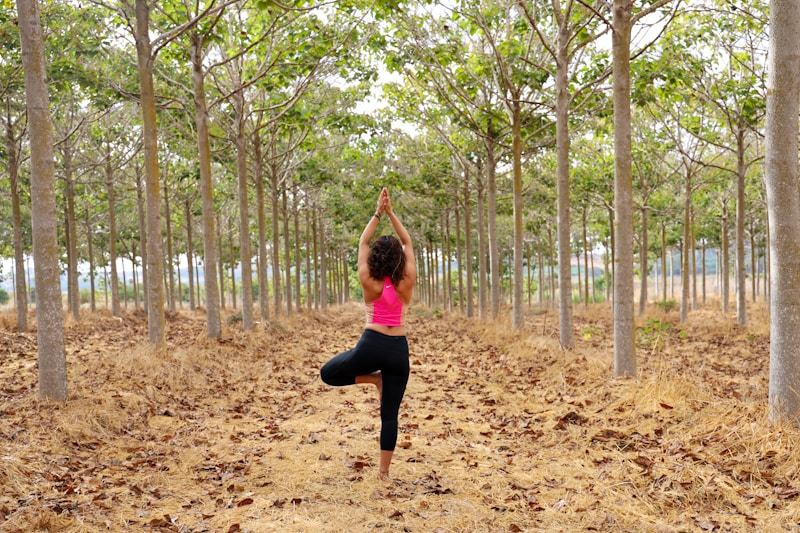I whole heartedly succumbed to the holiday season frenzy. Every temptation was welcome as though they were necessary for survival. Logic and reason vanished as deep-filled mince pies were washed down with oodles of red wine, after a hedonistic night in the company of Nicole Kidman and the delicious Alexander Skarsgard. I ‘caught up’ on almost every HBO TV series ever made and on the 27th December I began a new journey delving into the vast offerings of Netflix. Somewhere in my ‘festive’ head, it made sense to shun sleep and daylight and nest on a leather reclining sofa, relying on the sporadic visits from the cat to show the passage of time.
In December a whole new set of rules mysteriously applied:
- Test how much alcohol your liver can cope with
- Challenge your body to expand to its maximum width – sub challenge: Can you also fatten your earlobes?
- Work as little as possible. Spend as much money as possible
- Watch every TV series ever made, without interruption
- Take selfies of advanced yoga poses, edit them to look as though you can do them
Then on the 31st after a few fireworks fogging up the sky, the resounding sound of Auld Lang Syne and the chink of flutes of bubbly- the mysterious “New Year’s Resolution” appears:
- Detox until your liver is that of a new-born baby
- Decrease 4” in body circumference. Increase 4” in height
- Work less and earn as much money as possible
- Read every manuscript about yoga- in Sanskrit
- Learn Sanskrit
- Stick to a simple yoga practice (allow body to heal from previous weeks of vain folly)
Resolution v Intention
There seems to be a trend in 2020, we set an ‘intention’ and not a ‘resolution’.
Upon further investigation, albeit Instagram, which let’s face it has replaced the encyclopaedia Britannica as the font of all knowledge, I research ‘How to set an intention’.
- start small and get specific
- find your why
- set a theme for the year
- enlist an accountability partner
- reward yourself for reaching milestones
Isn’t that the same as what we do for a resolution? If in doubt, consult a dictionary.
“A resolution is a firm decision to do or not do something”.
“An intention is an aim or plan.”
I get it. The commitment is different. An intention accepts me not achieving it, it’s a plan I’m aiming for, whereby a resolution is definitive. I am going to be so good at intentions.
Perhaps ‘intention’ is the translation of the Sanskrit word Sankalpa? This type of intention is formed by the heart and mind. It’s a solemn vow. This meaning feels mightier than the definitive resolution.
More, less or better.
I wonder whether most resolutions are comparable. There will be something about food- whether it is eating more or less or better. Work is on the list, again whether it is more or less or better. Some kind of social connection again more or less or better. Choose any topic and just add ‘more, less or better’.
Why can’t we be happy with what we have?
As the guilt of the excesses pull at the seams of my yoga pants, I teach the first few classes of the year exploring the theme ‘you are fine as you are’. I try to do everything to counteract the insinuation that what you did and had last year wasn’t good enough and with tolling of Big Ben, you must improve it all.
New Year. New You.
Add to that, this year is a new decade. Therefore, it’s ten times more important that you change.
New decade. Really New10 You.
The pressure is on, tenfold. Are we setting ourselves up for failure? Why do we think the New Year will bring about dramatic changes in our lives? Have we done the necessary background work? If in doubt, consult a specialist.
The steps of change according to the specialists
According to the Transtheoretical Model of Change* you need to go through 6 stages.
Precontemplation- I have a niggling feeling that my lifestyle might not be the best way forward. However, I ignore the need to change. It is too much like hard work for very little reward.
Contemplation- I now recognise I need to move by tush, change my eating habits and get some sleep. After much deliberation there is an equal emphasis on the pros and cons.
Preparation (determination) – I am ready to take action within the next 30 days. Taking small steps. I buy a yoga mat, yoga pants, water bottle, juicer and subscribe to ‘farm drop’. I follow a few yogis on Instagram.
Action-Twice a week I take yoga and spinning classes. Twice a month I hike with friends then have a pub lunch. The rest of the week I eat wholesome foods.
Maintenance – I am now fully in this regime and despite the calls to go clubbing followed by a kebab in the wee hours, I resist. My focus is on not relapsing.
Termination – This is it. This is who I am. I have no desire to return to my previous ways. I will not relapse. (According to the authors, this stage is rarely reached, and people tend to stay in the maintenance stage).
This is a process. It takes time. It requires energy, thought and action. My festive vegetative state did not include any form of contemplation, let alone action. By setting an externally imposed date (1st January 2020), I set up for failure and to feel worse about myself.
‘If you knew you’d be in the same position today as you were 10 years ago: how would you feel?’
I do want to change, despite knowing it’s hard work. We all want to be the very best versions of ourselves, don’t we? But with change there is an element of a lack of gratitude to where you are. A disregarding of what you do have and who you are, as this isn’t enough. Isn’t this unyogic? If in doubt, consult a guru.
Guru consultation on New Year’s Resolutions
In Patanjali’s ancient text, Yoga Sutras, the first step of the yoga path explores ‘right living’. There are 5 Yamas, behaviours or core values: Ahimsa (non-violence), Satya (truthfulness), Asteya (non-stealing) Brahmacharya (restrain), and Aparigraha (non-possessiveness). With the latter, also translated as non-greediness and non-grasping, is the ancient sage saying we shouldn’t want more or better? How can I have a resolution that says I want a better paid job, if I am meant to be practising restraint and non-possessiveness?
What about wanting less? He talks about vairagya, the Sanskrit word for detachment and renunciation. Non attachment isn’t wanting less, it’s about not wanting. Period.
Well I am glad that cleared that up nicely.
Now what?
January is now a distant memory and I didn’t keep up my resolutions. Not that it is any consolation, but I am not the only one. Once again there is space to book classes at the gym and I’ve shared a glass of wine, or 2, with my fellow teetotallers.
But both this month and last has brought about a shift. I now have the notion of an intention, which I need to further define so that it becomes feasible. This is no longer procrastination, but the ‘contemplation phase’. Although I am not reading every yoga book in sight, I have gone back to the Sutras allowing these concepts to dance around my head, cajoling me to make changes that feel right and are sustainable for the rest of my life. Or at least until next Christmas where, undoubtedly, I will fall into the same trap again.













